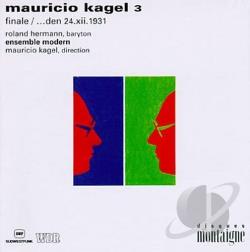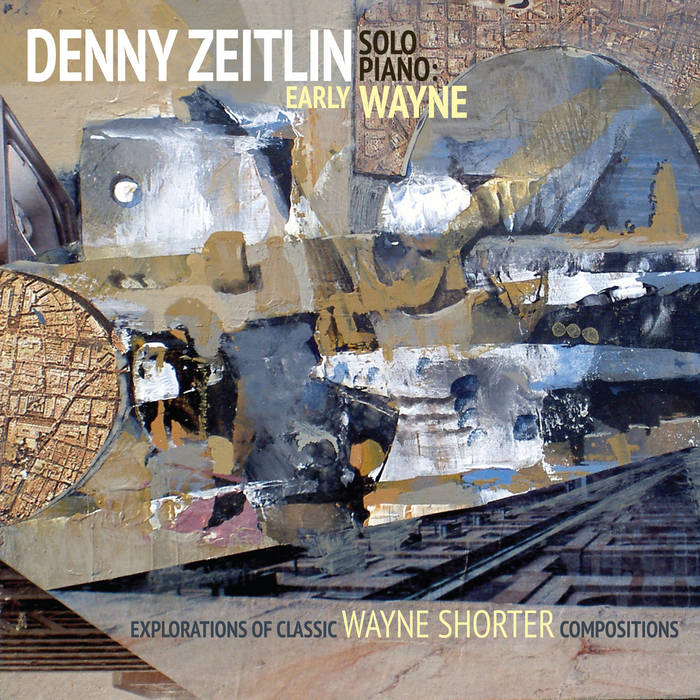
T.D.
-
Posts
5,385 -
Joined
-
Last visited
-
Donations
0.00 USD
Content Type
Profiles
Forums
Events
Blogs
Posts posted by T.D.
-
-
On 1/22/2017 at 8:46 PM, T.D. said:

Discs 3 and 4 - mostly Dufay, Binchois and Ockeghem.
-
-

Discs 1 and 2 (of 8). Dufay is the main composer featured on these 2.
-
13 hours ago, StarThrower said:



This very set happens to be next in my listening queue!
-
Jack DeJohnette "Concert for Inner Peace" (solo piano)
-
-
-
-
-

"...den 24.xii. 1931" "Garbled news for baritone and instruments" is my favorite Kagel piece.

-
For what it's worth,
Presto Classical (UK) has an online box set sale expiring today (1/16). Shipping rates to USA are low, and some prices are favorable relative to Amazon sellers.
I bought 4 items (Bavouzet's complete Debussy solo piano music, "Flemish Polyphony" by various artists, "Complete works of Guillaume Lekeu" by VA, and "Scarlatti: 50 Sonatas" by Pierre Hantai), which is a big splurge for me. [Usual disclaimers apply: I have no relationship to Presto Classical, etc.]
-
Going to see Jack DeJohnette (playing solo piano!) Friday. I don't have any of his recordings as leader, so ordered

-
I came across the following box (on the Ricercar label) by accident, while searching for something else. It looked so compelling that I had to order it!
[Added: Not all the music is sacred (some of the secular stuff is even off-color), but there are a lot of excellent masses.]

-
-
-
Good article on the NFL's stadium-building insanity, prompted by the Chargers' just-announced relo.
" These buildings [lavish new stadia] are in use no more than a couple dozen days each year, and they are built, in most cases, with substantial contributions from taxpayers. They are incapable of achieving many of their supposed purposes—creating economic stimulus, providing public space—but they sure make imposing if not especially enduring monuments to NFL owners."
[Sorry, I couldn't find any other NFL threads.]
-
-

Just ordered, waiting for delivery.
-
Sorry I'm late, but hoping it was a great one!

-
10 hours ago, JSngry said:
...
Berio is always some serious shit. Berio and voices...seems to always be an extra-exceptional occurrence.
Strongly agree on Berio and voices! Re. the non-vocal music, my experience has been highly mixed. Maybe I haven't heard the right pieces.
-
On 11/12/2016 at 10:20 AM, StarThrower said:
... Also sad to see the great Hungarian pianist Zoltan Kocsis on the obit list.
Very sad indeed. Regrettably, I only learned of this yesterday (5 Jan 2017).
-
:format(jpeg):mode_rgb():quality(40)/discogs-images/R-5265241-1462113981-8247.jpeg.jpg)
Discs 1-3. Hope to get through the whole box the next couple of days.
-
-
Will do, but it will take a while, possibly 2 weeks or so.
In the meantime, I see that you heard the Goldbergs on Opus 111. Hope you enjoyed them.
_forumlogo.png.a607ef20a6e0c299ab2aa6443aa1f32e.png)

:format(jpeg):mode_rgb():quality(40)/discogs-images/R-1310378-1208584575.jpeg.jpg)







What Classical Music Are You Listening To?
in Classical Discussion
Posted
Discs 5 (Ockeghem) and 6 (Josquin, Compere, Brumel, de la Rue).